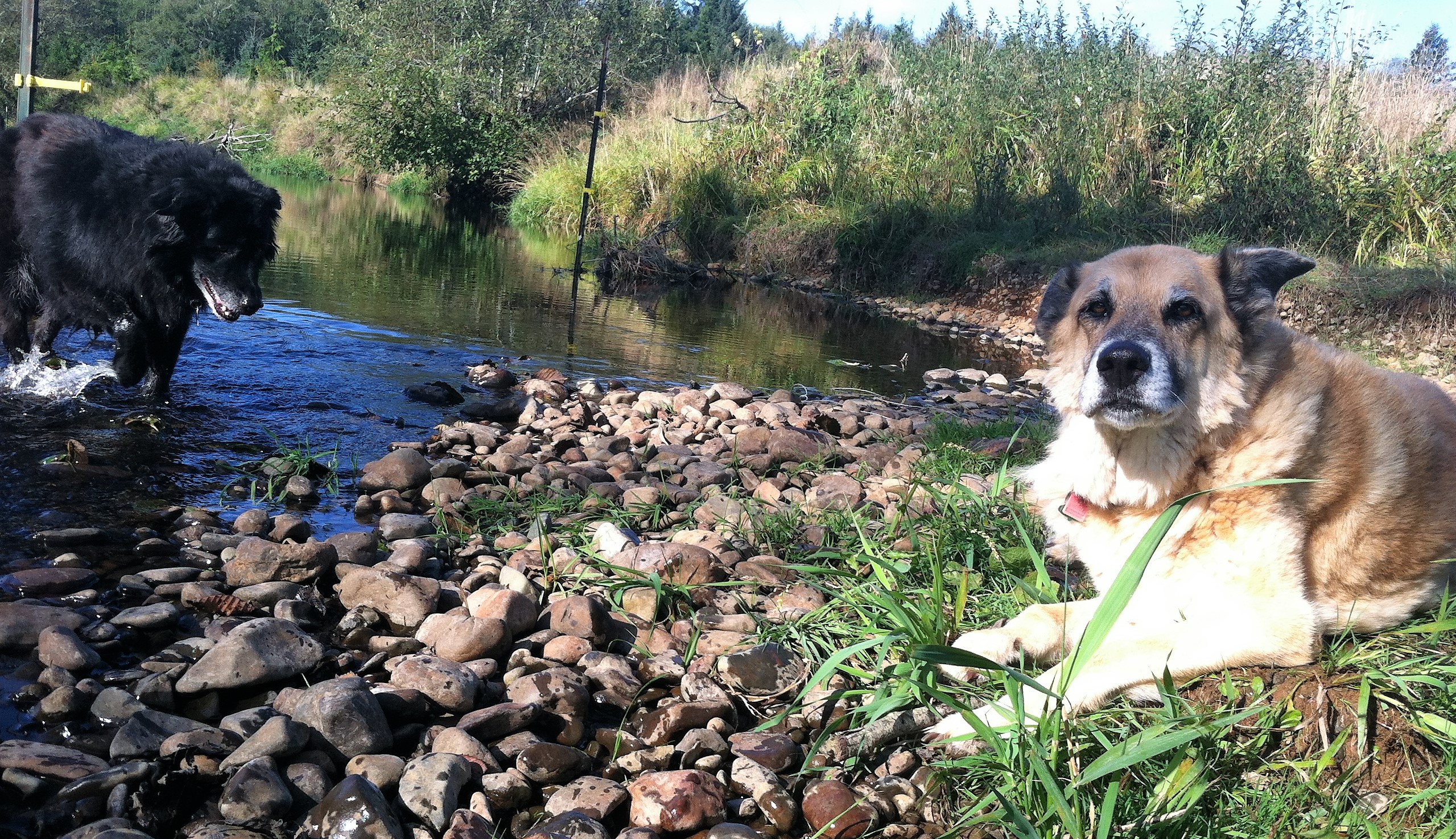Bonnie and Clyde Files 29
I sat on the bank and watched an American dipper dip in the rapids of the Lewis and Clark River. This was the first watching of a dipper in my life.
Bonnie and Clyde snoozed behind me in the grass. They were content. I’d fed them an assortment of fine treats, including pumpkin-tinged meat biscuits stolen from a friend’s pet during a recent pet/house sitting stint. It’s a fine thing when you steal something for two dogs named Bonnie and Clyde.
The river wasn’t doing much, except being a river. I thought about all the firsts in my life on this river, with these dogs. These firsts keep occurring and suggest a reason why more people should visit rivers without any intention or goal. Bring a dog along, too.
The dipper (aka as the water ouzel) hopped here and there, testing footholds, then found the right rock to dip her beak and draw life from other life in the river.
We all hope to find that right rock with the solid foothold.
My mind moved toward a novella I just finished reading, A River Runs Through It, by Norman Maclean. I never cared much for the film adaptation, and had never read the novella before rescuing it from a coastal garage sale or defunct Portland street library. It was free either way.
Why is that free books discovered at random or books costing less than two bucks discovered at random, are the ones that seems to change my life of late? Could an Amazon algorithm ever do something like that? It wouldn’t be random. It wants to turn a better profit.
There is no algorithm with these two old dogs. They are helping me undo the algorithm that currently ensnares me. Our adventures are random, beautifully random. More random please. Rivers bring randomness. Is randomness even a word?
I read A River Runs Through It in one sitting, sitting on an easy chair I hauled home for free years ago. This work is a classic of literature of the river, being a preacher’s kid and fly fishing. The first two categories greatly interest me, the latter does not. It’s a weird thing to read how some people are so obsessed with what they can extract from nature—the noble (often dangerous) extraction narrative. It is a deep mine of American literature (and also of nature-based reality shows like The Deadliest Catch). Hemingway was a warped master of this idea. I like to believe I write about what nature offers or gives that doesn’t involve killing something and then making a personal philosophy out of the methodology of the killing. Driftwood forts do no harm. Neither does tossing apples to deer.
Maclean writes in the novella, “A river, though, has so many things to say that it is hard to know what it says to each of us.”
That certainly feels true to me. The Lewis and Clark River certainly speaks to me in ways I can’t imagine it speaking to anyone else. A river has many voices and I simply can’t understand the one that rhapsodizes the perpetual taking from it without ever whispering a haiku of gratitude.
What are these Bonnie and Clyde adventures about? I never think about an editorial line with them. Something at the river randomly presents itself and we flow with its randomness. I think that’s a damn good way to live and I wasn’t really living that way before. Too much planning and calculation. Not enough watching the dipper dip when I never expected to encounter a dipper.
Maclean also writes in the novella: “Eventually, all things merge into one, and a river runs through it.”
I’m counting on it.
That won’t be random.
(If you found this post enjoyable, thought provoking or enlightening, please consider supporting a writer at work by making a financial contribution to this blog or by purchasing an NSP book.)

